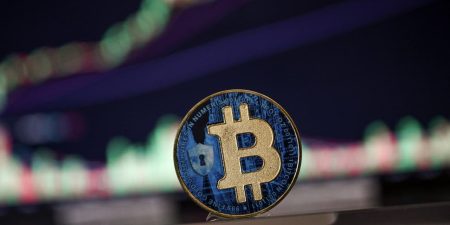Another top Wall Street analyst is tempering his bearish outlook for both the U.S. stock market and economy following last week’s June inflation report.
Last Wednesday’s smaller-than-expected rise in the consumer-price index for June has modestly improved the chances that the U.S. could achieve the soft landing for the economy that stock-market bulls have been hoping for, said Marko Kolanovic, chief global markets strategist at JPMorgan Chase & Co., in a note to clients dated Monday.
“While we still see the Fed hiking at the July meeting, the downside CPI surprise means a narrow path to a soft landing is modestly wider,” he said.
The June inflation report showed consumer prices in the U.S. increased by just 0.2% last month, the slowest pace since August 2021 and slower than economists polled by The Wall Street Journal had expected.
After Treasury yields fell sharply in response to the data, Kolanovic warned that bond valuations are looking “rich,” and advised clients to maintain bearish bets against long-dated U.S. bonds like 10-year Treasury notes and 30-year Treasury bonds.
Yields for both were modestly lower on Tuesday, with the 30-year yield
TMUBMUSD30Y,
down 1.3 basis points at 3.908%, and the 10-year
TMUBMUSD10Y,
off 2.3 basis points at 3.776%.
Like many on Wall Street, Kolanovic was bullish on stocks heading into 2022, and doubled-down as stocks moved lower during the first half of the year. However, he and his team correctly anticipated the short-lived rally that took place last summer.
They then turned bearish heading into 2023, arguing that a looming recession would likely drive equity valuations even lower.
Since then, he and his team have been skeptical of the stock market rebound, led by technology stocks seen benefiting from the artificial intelligence software boom, advising clients to stick to defensive stocks and Japanese stocks, which outperformed during the first half of this year.
He still believes valuations for the U.S. stock market leaders look stretched, although small- and mid-cap U.S. stocks could see “quite a bit of upside” if core inflation returns to a 2.5% 12-month pace relatively quickly. Core inflation was 4.8% on a trailing 12-month basis in June, slightly less than the 5% pace economists had expected.
Kolanovic was nicknamed “Gandalf” by Bloomberg News in 2015 after anticipating a sudden selloff that rocked U.S. stocks late that summer.
Since then, he has routinely received high rankings in Institutional Investors’ annual polls of the top Wall Street analysts.
U.S. stocks were mostly higher early Tuesday, with the Dow Jones Industrial Average in the lead as investors digested a flurry of earnings reports from some of the largest companies in the U.S.
Shares of Verizon Communications
VZ,
were leading the blue-chip gauge higher following reports that the telecoms giant and its competitors would start testing for lead contamination.
Kolanovic isn’t the only Wall Street analyst to rethink his expectations for a recession following last week’s inflation update.
Goldman Sachs Group Chief Economist Jan Hatzius on Monday trimmed the probability of a recession in the next 12 months to 20% from 25%, saying “the recent data have reinforced our confidence that bringing inflation down to an acceptable level will not require a recession.”
Read the full article here














